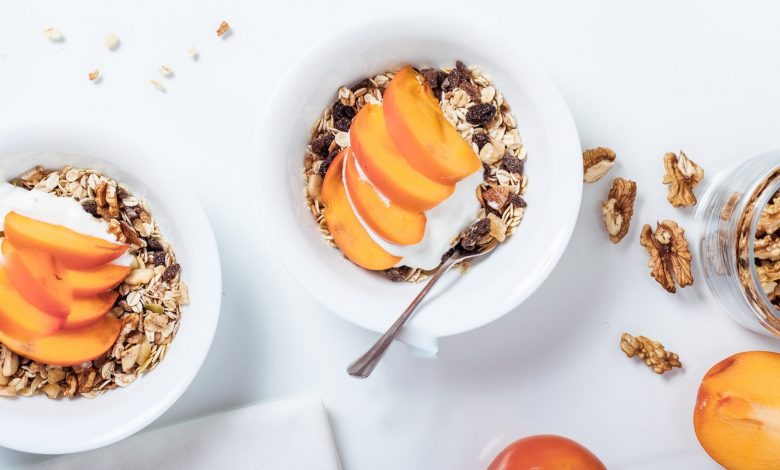
Is Breakfast the Most Important Meal For Weight Loss?
For a long time, we had stuck to the belief that breakfast kickstarts our metabolism, and helps burn more calories, which eventually triggers weight loss. However, contrary to this truth, researchers believe that breakfast might not be that significant.
Before plunging into arguments about whether breakfast is the most important meal for weight loss, we must focus on:
Benefits of Breakfast:
- It boosts up the metabolic activities in the body and prepares it to burn calories later in the day.
- It promotes a lower BMI (Basal Metabolic Rate).
- It provides enough space and time for fruit and veggie intake.
- Breakfast provides a high Ca2++ ( calcium intake) and aids vitamin absorption.
- Most breakfast choices contain less dietary cholesterol intake.
- When we skip breakfast, our brain signals our body system to conserve the calories rather than burn it.
- Once you are full after a high fiber and protein breakfast, there is no room for junk and unhealthy food options.
The biochemistry of weight loss is a complex one. Recent research have created a paradox as to whether or not the morning meals serve the purpose of weight loss.

Photo by Vincent Rivaud on Pexels.com
In 2017, The American Heart Association reviewed the biology of the effects of different eating patterns, including breakfast. After mining related databases, they concluded that people eating breakfast are lean and less likely to be obese.
However, a study at the University of Alabama at Birmingham (UAE) showed that overweight people were not able to lose weight after breakfast. Contrary to this, those who skipped breakfast shed the pounds. This finding has left us in ambiguity as to whether skipping breakfast would be a healthy option.
However, expert clinical dieticians still focus on the good habits of a healthy breakfast. Ideally, breakfast must constitute healthy options. A filling breakfast no doubt, keeps check on diabetes mellitus and coronary heart diseases.
The glycogen stored in the body is the fuel tank for energy. Breakfast is the meal taken after long hours of fasting, say eight to ten hours. The important biological process of thermogenesis stimulates the metabolic process. The first meal in the morning replenishes the glycogen stored and hence generates energy supply to the muscles, eventually, keeping a check on insulin levels.
It is quite normal to be hungry during lunchtime or mid breakfast time, even after a fuller portion of breakfast; this is because of the elasticity of the stomach. The hunger pangs would be more if the stomach becomes used to one heavy meal, and in case a meal is skipped, it would signal for food. So, small meals are recommended throughout the day to get the body satisfied.
The entire meal plan or the calorie intake for the whole day determines the rate of metabolism. Healthy snack intake in between meals helps the stomach stay full and satisfies the body.
Remember, as young ones when we refused to eat, what were the ultimate dangers we were made aware of? We feared that all the stored energy would get depleted, and this would be our end. In the same way, breakfast is the meal which readily gives energy instead of mining the stored one.
Not Any Breakfast – Choose the Food Wisely
Researchers strongly believe that not all breakfasts lead to weight loss. The healthy high protein and fiber-rich breakfasts stimulate metabolism with less carbohydrate intake. Sugary and fat-rich sausages, croissants, waffles, and butter will not serve this purpose.
Another important constituent of breakfast is that it has the tendency of high calcium intake. In research, it has been found that low calcium levels in the body is another cause of weight gain.
Gene-specific studies have been done on foods that trigger or slow metabolism. The conclusion is that ultimately the recommended low fat, high fiber foods are appropriate for weight loss.

Photo by picjumbo.com on Pexels.com
How Skipping A Morning Meal Leads To Weight Loss
So far, it might seem like the myth that skipping breakfast lowers your metabolism and eventually causes weight gain is busted, but that is not the only truth. Studies have shown that skipping breakfast doesn’t comply with total calorie intake. Some suggest that eating breakfast may have increased weight loss, but it does not guarantee a boosted metabolism.
Going through the findings and facts, we must keep in mind the choice of food; lifestyle is ardent in weight loss. If breakfast is ignored in the morning, and one finds themselves hogging on junk, the only option at mid-breakfast would definitely cause you to gain weight. Also, if you are skipping breakfast, then make sure you have controlled calories in other meals of the day.
One important thing if you have a sedentary lifestyle is to check your calorie intake, Also, the consumption of metabolic booster foods should be considered.
The important findings of Australian researchers are:
- There is no evidence that eating breakfast lowers weight gain and prevents overeating in the next part of the day.
- There is no link between hunger and breakfast found
- People come with different metabolism rates.
A nutritionist, Sarah Coe of the British Nutrition Foundation, says that the relationship of skipping or having breakfast in weight loss is “mixed.”
Again, the studies give mixed opinions as to whether having or skipping breakfast causes weight loss. Not one theory could be accepted because studies find it difficult to take the eating patterns and selection of food of people studied.
The Hormonal Story
The two hormones, ghrelin, and leptin, are associated with hunger pangs. Leptin suppresses hunger; it is made up of fat cells. Ghrelin brings growling in the stomach and causes craving for food.
The hormones come into action in the morning to persuade you to have breakfast. Thus, breakfast is a must to maintain the energy deficit of the body. The logic of weight loss lies in the fact that we consume fewer calories than the body burns.
The journal of the American Dietetic Association stated that those eating cereal, fiber, and a total of 250-calorie breakfast have a lower BMI.
Bottom Line
The solution for the question “Is breakfast the most important meal for weight loss?” merely depends on the checklist of calorie intake in breakfast and healthier options.



